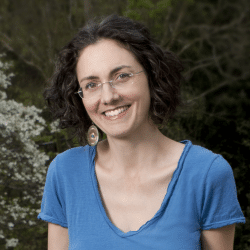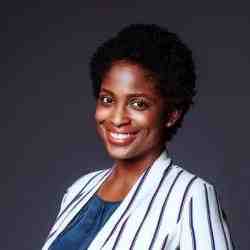Introduction
Faced with increasingly complex social and environmental challenges and the insufficient number of social entrepreneurs to address them, Emmanuel Kasperski is creating a supporting environment for everyone to become changemakers. Starting in a French region with some of the lowest levels of social entrepreneurship, Emmanuel is using the templates of successful French entrepreneurs and demonstrating that through local coalition building and adequate support, it is possible to foster the creation and growth of a critical mass of social enterprises, catalyze changemaker communities, and accelerate innovation.
L'idée nouvelle
Emmanuel is convinced that there is an enormous untapped pool of local changemakers with the creativity and dedication to adapt and scale systems-changing ideas across France. He is opening another route to accelerate social changes by mobilizing all the stakeholders in a community around their own self-interest in resolving a social or environmental problem. As such, he is piecing together all the elements needed for a social solution to be constructed. Through a process of collective entrepreneurship, he is supporting local changemakers in replicating the most successful social and environmental enterprise models from all across France and inventing new ones when solutions have yet to be found. Emmanuel has increased by fourfold the number of social enterprises created each year in his region, enabling the creation of jobs for the most excluded and paving the way for the necessary infrastructure to support these types of enterprises.
The co-construction of social enterprises is an incremental process, in which local governments, local businesses, citizen groups, and staff members all take part in supporting a designated changemaker in his/her entrepreneurial endeavor. The individual enterprises then form a collective of social enterprises. To keep this collective model together, Emmanuel has engineered a very clever, unique equity ownership model, in which the group of stakeholders owns 50+1 percent of each enterprise and each enterprise owns 40 percent of the collective. This team-of-teams model fosters a self-sustaining dynamic and prevents the individual opt-out of collective members.
Emmanuel’s model is relevant in areas where the context is too complex for individual entrepreneurs to succeed or where an urgent social gap has stayed chronically unfilled. He also engages social entrepreneurs who have encountered similar issues in their respective regions. Through his work, Emmanuel is creating a platform to share best practices and to competitively incentivize and accelerate innovation in a given region.
Le problème
Social change over the past decades has demonstrated that the successful, systemic resolution of social and environmental problems often depends on individual initiatives of social entrepreneurs who have the vision, determination, and qualities to overcome obstacles and build successful social enterprise models. However, faced with the multiplicity and magnitude of the challenges we face, society is confronted with an insufficient number of social entrepreneurs. While initiatives like Ashoka’s Youth Venture and others prepare young people to become social entrepreneurs in the coming years, issues are pressing and societies cannot wait any longer for solutions.
At the local level, governments, citizen organizations (COs), businesses, and citizens have been organizing to address social and environmental challenges. However, they tend to operate in silos and are poorly equipped to act proportionally to society’s needs. Indeed, social policies are subject to power issues and often lack the necessary pragmatism to embrace all economic, social, environmental, and cultural specificities of local contexts. Social sector organizations struggle to innovate because of their reliance on old intervention frameworks and their lack of a global perspective on the systemic causes of issues they are addressing. Businesses are driven by short-term economic objectives and fail to integrate the social return on investment created by social projects, and hence do not invest enough in high social value-added, low financial return initiatives. And finally, while citizens are increasingly aware of problems, they do not know how to take part in the solutions. They may volunteer, but very few are ready to take the risk of social entrepreneurship (i.e. such as lack of a fixed salary and professional and personal isolation).
Even when successful local social enterprise models do surface, they often fail to spread throughout the country. Various factors contribute to this. First, social entrepreneurs are often very isolated and do not have the means to grow their organizations. Those who succeed need years to build a local network, legitimacy, and local financial partnerships to survive or spread into new regions. Second, very innovative models raise the resistance of local governments and local COs, who often block the launch of such initiatives. And finally, entrepreneurial people who try to set up a solution often struggle to find capital and support: Nine projects out of ten are never launched. Consequently, very few social enterprises reach a regional scale, and even fewer reach a national scale. There is a true missed opportunity to create large-scale solutions and catalyze competitive innovations.
La stratégie
Until 2005, despite an ambitious garbage selection program, the city of Montpellier in the south of France was failing to reach its paper recycling goals. With a population and business sector growing exponentially, the city was well below its 45 percent waste selection objective. In the meantime, in Rennes, a similar-sized city in Brittany, the social enterprise Feuille d’Erable was collecting 2,000 tons of paper from local businesses every year and recycling them through an integrated chain of social businesses, while employing 25 people who had long been out of work. However, there was no social entrepreneur in Montpellier to replicate this particular model and all attempts to create a new social enterprise around waste sorting and recycling had failed. Puzzled by such paradoxical situations, Emmanuel created REPLIC for any social or environmental challenge on a given territory, he has created a system to organize all local stakeholders to identify existing solutions from other contexts, adjust them, and then implement them.
Emmanuel knew that he had to recruit strong, qualified changemakers to create and lead the social enterprises his region needed. But since these changemakers often lacked the qualities of leading social entrepreneurs, they would only succeed if given the right tools and support to lift administrative and financial obstacles. As a result, Emmanuel designed a unique coalition model that brings together all the stakeholders needed to identify pressing social issues, decide on the most relevant social enterprise model and create a supportive environment for success. His coalition groups consist of 1) local government representatives from the regional and municipal levels, to bring legitimacy, financial means, and lift administrative barriers 2) social sector organizations, to help identify the gaps in the existing landscape and avoid any unnecessary competition 3) private companies to bring their expertise and networks 4) selected changemakers, with the qualifications to head and staff the social enterprise when it is launched.
To build these coalitions, Emmanuel has chosen the legal form of Collective Interest Cooperatives, a unique French model that allows for collective ownership of socially relevant enterprises. He engineered a mutual ownership system guaranteeing that all stakeholders stay engaged and that social enterprises created on a given territory develop synergies and cooperate, yet can still strive independently from each other. This mutual ownership system also allows for the viral spread of any successful social enterprise in the cooperative to other communities and regions.
For example, through REPLIC, Emmanuel and his coalition have lifted all obstacles to create Feuille d’Erable in Montpellier, the first recycling social enterprise. Shareholders pooled the 200K EUR (US$282,500) initial infrastructure investment and recruited and salaried a qualified project leader. With the advice of private entrepreneurs they have grown the business to employ 30 people who had long been excluded from the job market. As a result, the municipality changed their garbage collection tax and over 20,000 citizens have been informed about how to select their garbage and collect over 50 tons of paper every month. Like all other changemakers heading a social enterprise in REPLIC, the head of Feuille d’Erable would never have founded such a company had he been alone. But now, with the support of his peer changemakers, he is successfully managing a booming social business.
With the creation of five social businesses in Montpellier within five years, which in turn are replicated in adjacent territories, REPLIC has initiated a virtuous cycle of positive social and environmental change in the previously depressed region. Local governments, COs, and citizens now have the REPLIC reflex and ask for REPLIC’s intervention when they see an unfilled social need. Emmanuel is looking to replicate REPLIC in other territories with the support of local stakeholders promoting the model. Many regions have already expressed a strong interest: Champagne-Ardennes has already raised the money to launch REPLIC, and Nord-Pas-de-Calais and Rhône-Alpes are building coalitions that will lay the groundwork to create REPLIC. By scaling up his mutual ownership model to a national scale, Emmanuel wants to create a platform of changemakers and social enterprises that will accelerate social innovation and share best practices.
La personne
Emmanuel grew up in some of the most industrially and economically depressed areas in the North of France. He was nourished by stories from his two grandfathers, one a miner who died of silicosis, and the other, a local union leader. From a very young age, Emmanuel visited factories occupied by strikers and listened to stories of workers hardship—even building very strong ties with some of them. During those years, he attended summer camps and became a camp leader at age 17. Emmanuel developed a passion for working with at-risk and disadvantaged youth and loved how the right support could transform their self-esteem within three weeks.
When Emmanuel found out at 18 that his health would keep him from becoming a pilot as he had always dreamed, he decided to follow his heart and work with disempowered groups. Right out of business school he joined ADIE, the newly launched national microcredit federation and launched their delegation in the North of France. For the following three years Emmanuel supported excluded people in creating their businesses through microcredit. A natural-born problem-solver, Emmanuel immediately came up with new ideas and models: He replaced the caution model with a solidarity guarantee, created a catalogue and toolkits for standard models of enterprises, and launched the first material marketplace to help entrepreneurs limit their initial investments. But the federation, which only mainstreamed his ideas many years later, repeatedly inhibited his efforts.
Emmanuel went on to take over AIRDIE, a newly established microcredit and social investment platform in Montpellier. For the next 12 years he tested and implemented his ideas. In particular, he managed to convince local banks to delegate credit decisions to AIRDIE up to 23K EUR (US$32,490), thereby dramatically increasing investment possibilities. AIRDIE became France’s regional microcredit institution with the best reach into low-income groups and the highest sustainability levels for created enterprises.
But these successes only underscored the fact that the region needed accelerated creativity and sustainability in developing social enterprises in order to integrate marginalized people and establish sustainable environmental businesses. Emmanuel recognized that most people are ill equipped to become entrepreneurs and lead their own enterprises. Year after year, he saw the large number of failed enterprises. In 2004, Emmanuel decided to organize a conference on the topic of “Replicating social innovations in the Languedoc Roussillon Region” where he brought together all the important local and national stakeholders and engaged them in the creation of REPLIC. Five years later, with a strong track record, Emmanuel now wants to step away from operations and focus on national expansion.




